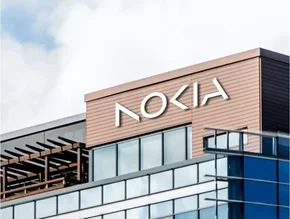Ericsson & NETSCOUT Explore The Future of 5G Monetisation

Katherine Ainley joined Ericsson UK & Ireland as CEO in 2021, having held multiple senior executive roles at BT since 2007. One of Technology Magazine's Top 100 Women in Technology, she sat down with Mobile Magazine to discuss the future - and present - of 5G monetisation.

What research and development has Ericsson undertaken around 5G and how does this impact monetisation?
"We’re at the forefront of research and development, helping to define mobile standards, delivering industry leading 5G technology and working with operators to develop new business models and services that can provide opportunities for revenue growth.
"Operators have certainly faced challenging times with stubborn inflation and difficult economic conditions recently, but there has also been signs of service revenues growing. From 2020 to 2023, global mobile service revenues increased by around 15%in total and it is estimated that 5G subscriptions have reached close to 1.6 billion globally.
"A key breakthrough has been launching 5G standalone, the gold standard of 5G. Not only does it offer enhanced speeds and ultra-low latency, but it also unlocks premium 5G services like network slicing, which can offer tailored connectivity for consumers and enterprise partners. This type of service is a game-changer for a wide range of industries, like gaming and broadcasting, who need guaranteed performance and it also provides operators with exposure and access to new markets.
"Our research shows that around 290 5G networks have been launched commercially, of which more than 40 service providers are offering services based on standalone technology. We’ve already supported Vodafone and Virgin Media O2 with launching 5G standalone in the UK and we look forward to more news on 5G standalone in 2024.
"We also collaborate closely with leading operators and businesses to showcase real-world applications and the transformative potential of 5G in various industries. Last year, we partnered with the Port of Tyne and BT to deploy a 5G private network and smart port technology across the entire estate. The private network will support autonomous navigation technology, remote crane operations, connected drones, wearable technology, and a connected ecosystem of AI sensors."
How do consumer expectations impact monetisation of 5G?
"Consumers expect 24/7 connectivity, whether they’re commuting to work or scrolling social media at home. Data usage is growing by 20% each year, with increased demand for data-intensive activities like XR and cloud gaming. Gaming traffic with leading UK operator EE has doubled since the beginning of 2023.
"There’s an exciting opportunity for operators to deliver premium 5G services which meet and exceed evolving consumer demands. For example, operators can offer tailored subscription packages or usage-based models as an alternative to unlimited data packages which stifle profitability."
Is the current model of inflated data buckets and flat rate unlimited sustainable?
"Given the record-high cost of living, it's unsurprising that costs play a significant role in 5G consumer decision-making. Our research shows that 17% of users consider cheaper rates of 5G mobile data plans when switching service providers, with 13% switching for better discounts on 5G phones. This has led to a dependence on flat-rate contracts which are somewhat unsustainable for operators.
"However, alongside cost considerations, consumers prioritise “always-on” connectivity to meet their daily needs, no matter where they are. Poor 5G performance and coverage in public locations such as event venues and airports can lead to a threefold increase in user churn over six months.
"Consumer demand is there for elevated connectivity. We believe that the next phase of 5G will give operators the opportunity to differentiate services, such as innovative service bundles and add-ons, to create a more sophisticated commercial model. In turn this will enable better 5G quality coverage and capacity."
What does the future hold for 5G monetisation?
"We’re certain that there’s a bright future ahead. To achieve 5G growth at scale, it's crucial to shift towards 5G standalone, accelerate deployment in the mid-band spectrum, and unlock transformational features such as network slicing. This is hugely important not only for the operators but crucially for the ecosystem and network that relies on this connectivity.
"The UK Government's Wireless Infrastructure Strategy estimates that widespread adoption of 5G could deliver productivity benefits of £159 billion for the economy, particularly important amid continued economic challenges. So, we must strive for the UK being a world leader in 5G mobile networks if we want to reap the biggest rewards.
"We’ve already seen the launch of 5G standalone in the UK with some operators, so we have the chance to leapfrog European counterparts with more progress in 2024. We’ll continue to work with operators to showcase the transformative power of 5G, whether it's powering international real-time cloud gaming tournaments, drones at smart ports or AI to improve professional rugby teams’ performance. Watch this space!"

Ted Curtis has been leading 5G and network at NETSCOUT for over a decade, having previously held positions at Tektronix Communications, Worldnet Data Systems and Nortel Networks.
What is the current reality of the shift to 5G?
"The shift from 4G to 5G is undoubtedly a costly process for communications service providers (CSPs). Along with the cost, providing more advanced features and services will involve serious complexity as networks move to the cloud, new interfaces are introduced, and encryption is implemented. To make installing this costly infrastructure worthwhile, CSPs will need to think of ways to establish an attractive 5G offering to maximise the return on investment.
"To ensure a profitable transition to 5G, CSPs must turn their focus towards areas with the greatest monetisation potential. These areas could include some exciting possibilities such as smart city traffic management, which uses cameras, sensors and cellular technology to deliver real-time information on traffic and incidents.
"Additionally, since 5G will maximise throughput and minimise network latency, CSPs may aim to monetise applications which would benefit most from improved connection speeds. This includes gaming and e-sports, as well as more advanced applications such as augmented reality (AR) and virtual reality (VR). Improved network speeds, as well as the draw of wireless and portable broadband connection could encourage customers to opt in to 5G services which promise to deliver a smoother and more responsive experience."
How can the telecommunications industry interact with consumers to boost 5G monetisation?
"To make offering 5G worthwhile, providers should also aim to achieve network personalisation by examining key customer insights. Details regarding the quality of each customer’s experience facilitate advanced analytics which produce vital insights, improving the overall user experience.
"Ultimately, to roll out 5G services with new use cases, CSPs first have to understand how their customers are interacting with the service.
"Providers must assess what is happening across their network to achieve service assurance, meaning their top priority is monitoring the user plane. By analysing the speed and quality of service customers are receiving, CSPs can deliver efficient, personalised and higher-performance 5G services, in turn achieving increased customer satisfaction due to the improved experience.
"Furthermore, ensuring a full understanding of the user experience is especially central to 5G monetisation concerning non-human users, such as IoT devices, as these are even more reliant on the objective measurement of the end-user experience to achieve service satisfaction."
**************
Make sure you check out the latest industry news and insights at Mobile Magazine and also sign up to our global conference series - Tech & AI LIVE 2024
**************
Mobile Magazine is a BizClik brand
*************






